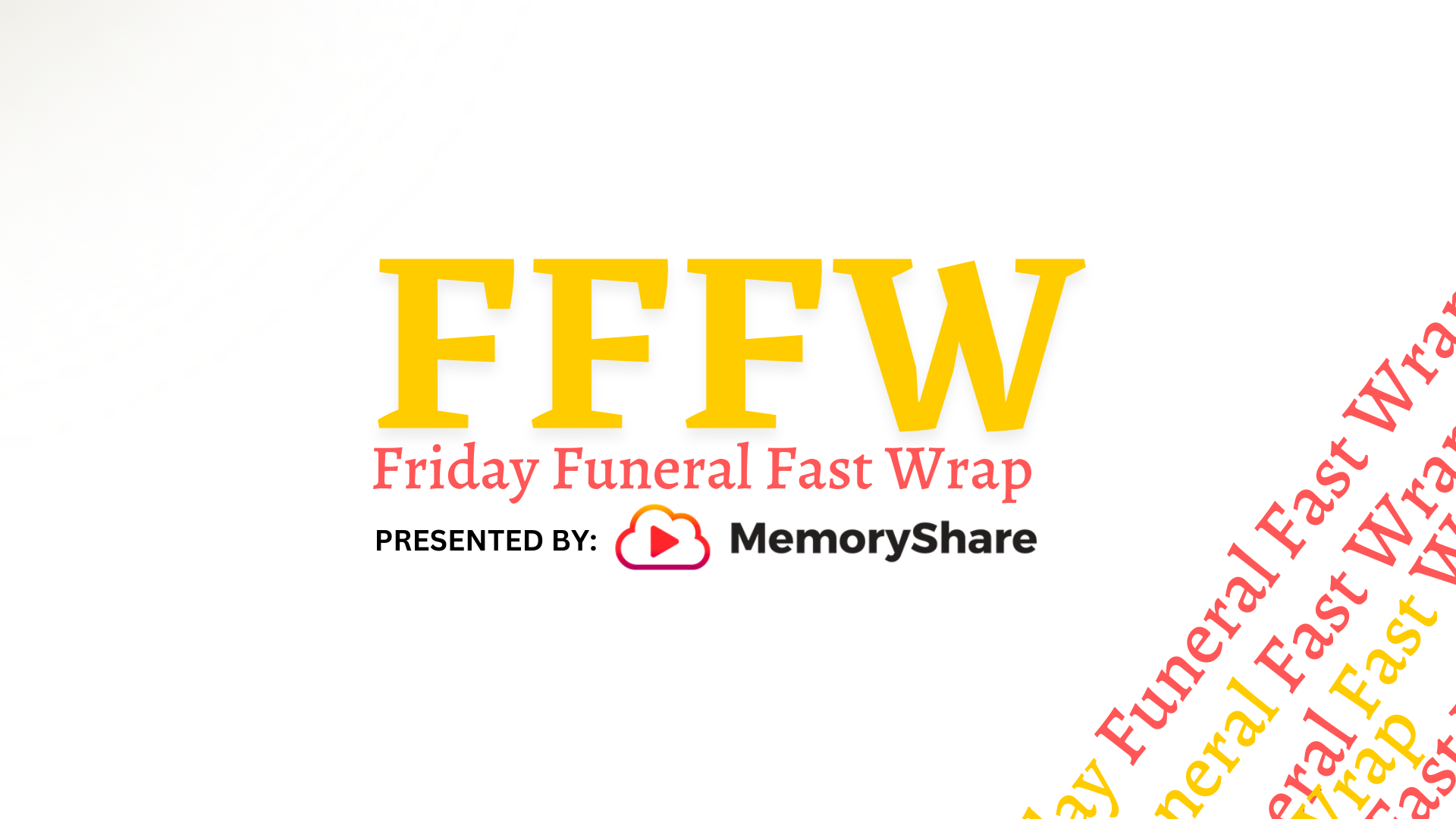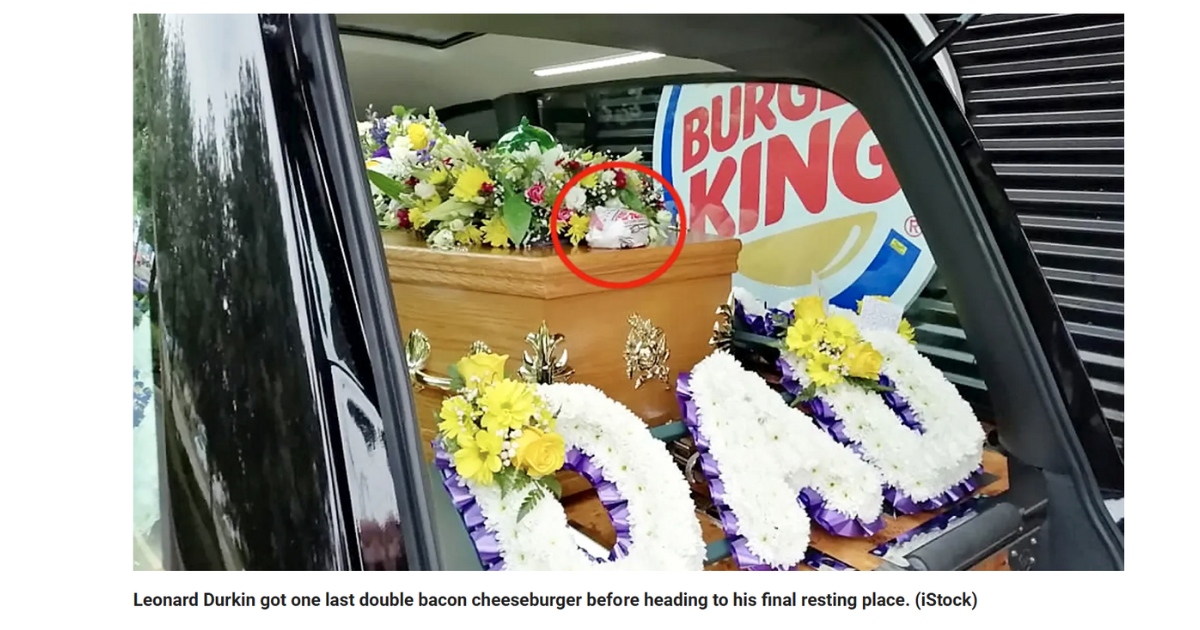Funeral Planning: Guaranteed Prepaid Contracts Losing Allure
 The funeral industry is reconsidering one of the biggest selling points of prepaid funeral contracts?locking in the price prior to death. Escalating commodity costs combined with unprecedented declines in interest rates and stocks have stirred intense debate about funeral agreements that contain price guarantees for caskets, flowers, transportation, embalming, and other goods and services. In prepaid funeral arrangements, also known as pre-need agreements, customers set aside funds for their funeral and burial services before their deaths, and the money generally is placed in a trust account that bears interest.
The funeral industry is reconsidering one of the biggest selling points of prepaid funeral contracts?locking in the price prior to death. Escalating commodity costs combined with unprecedented declines in interest rates and stocks have stirred intense debate about funeral agreements that contain price guarantees for caskets, flowers, transportation, embalming, and other goods and services. In prepaid funeral arrangements, also known as pre-need agreements, customers set aside funds for their funeral and burial services before their deaths, and the money generally is placed in a trust account that bears interest.
Some funeral homes in Illinois and across the country recently have stopped offering guaranteed pre-need contracts, fearing that inflation in years ahead will outstrip earnings in the trust accounts. Under such a scenario, funeral homes assume the financial loss if in the future the trust account does not have enough money to cover funeral costs.
Without the price guarantee, however, families have little incentive to buy pre-need contracts, industry watchdogs said. The promise of buying something for tomorrow at today’s prices lured many customers who wanted to remove the burden of funeral arrangements from their families.
Funeral planning is big business. A 2007 AARP survey of 1,087 Americans 50 and older found that 23 percent had prepaid a portion of funerals and burial expenses for themselves or someone else.
In Illinois, more than 70 percent of prepaid agreements that were placed in trust with a funeral trade group have fixed prices, according to the Illinois comptroller’s office, which regulates the funeral industry. The remaining contracts are merely deposits to be applied toward the final price of the funeral. In “non-guaranteed” contracts in Illinois, the principal is protected but not future earnings.
Even without fixed prices, prepaid contracts make sense for people who want to qualify for public aid because the contract is not counted as an asset for Medicaid purposes, said Joshua Slocum, executive director of the Funeral Consumers Alliance in Vermont. Otherwise consumers can open a pay-on-death account at a bank or credit union instead of giving money to a funeral home, he said.
“It’s been terrible for the funeral home and the consumer,” Slocum said. “This [guaranteed pre-need contract] is only a good thing when the [financial] market is good.”
But Illinois funeral homes have learned that even in good economic times guaranteed contracts come with unexpected risks.
For nearly 30 years, state funeral directors entrusted their customers’ pre-need funds to their professional organization, the Illinois Funeral Directors Association, which invested the money for their members. At the end of 2007, the association reported to state regulators that its trust held more than $300 million for 49,000 Illinois residents.
For years, though, the association paid out higher interest on death claims than its investments had earned. The practice led to a deficit in the trust beginning in 2001. The problems were compounded by the trust’s investment strategy. The IFDA bought life insurance policies that invested heavily in corporate bonds. When the bond market collapsed last year, the deficit doubled to nearly $60 million.
The IFDA eliminated the deficit last year by writing down the value of all 49,000 accounts, some by as much as 33 percent. More than 34,000 accounts have guaranteed contracts. Unless the trusts’ investments recover, funeral homes expect to lose money on the guaranteed contracts, which could force some to go out of business, said David Nixon, an Illinois financial consultant to funeral homes.
The debacle has given Nixon more reason to advise Illinois funeral directors to stop selling guaranteed funeral contracts. “It really doesn’t make sense in the long run to guarantee things that are beyond your control,” he said.
Terry Plummer, who owns a funeral home in the central Illinois town of Litchfield, stopped offering guaranteed contracts last year when the problems with the IFDA trust were revealed. “It’s impossible to do this anymore, especially now with the economy,” he said. “My customers understand.”
The economic downturn is challenging funeral homes across the country. In Rockland, Mass., Robert Biggins stopped offering guaranteed contracts six months ago at his funeral home. Some funeral costs increase by more than 5 percent a year, but banks are not paying that much for deposits, said Biggins, past president of the National Funeral Directors Association.
Indeed, a five-year CD is paying, on average, 2.65 percent, according to Bankrate.com. Consumer prices rose on average 3.85 percent last year, but in January they rose less than 1 percent.
In New York, the state association invests pre-need trust funds only in federally insured bank deposits. If bank rates remain low, funeral homes will have to make some tough choices, said Bonnie McCullough, executive director of the New York State Funeral Directors Association.
“We’re in unprecedented times right now,” she said. “Can you guarantee what something is going to cost 15 years from now?”
Article By: asachdev@tribune.com



